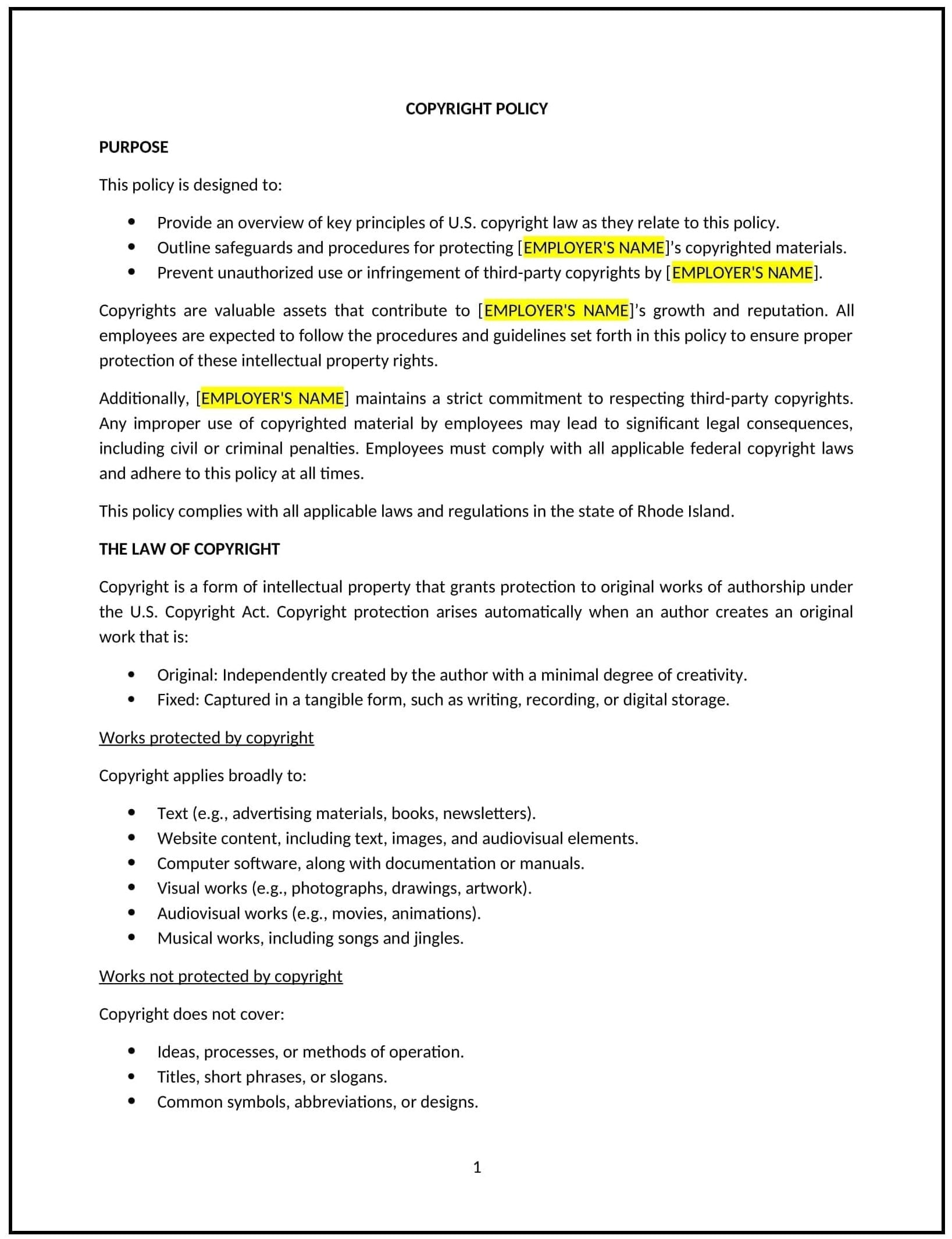Got contracts to review? While you're here for policies, let Cobrief make contract review effortless—start your free review now.

Customize this template for free
Copyright policy (Rhode Island)
This copyright policy is designed to help Rhode Island businesses protect intellectual property and respect the copyrights of others. It outlines guidelines for using copyrighted materials, creating original content, and addressing infringement claims.
By adopting this policy, businesses can reduce legal risks, promote ethical practices, and align with intellectual property laws.
How to use this copyright policy (Rhode Island)
- Define copyright ownership: Specify who owns content created by employees or contractors.
- Set usage guidelines: Outline how copyrighted materials can be used, such as for marketing or training.
- Address infringement claims: Provide steps for responding to claims of copyright violation.
- Train employees: Educate staff on copyright laws and the importance of respecting intellectual property.
- Review and update: Assess the policy annually to ensure it aligns with evolving business needs and legal standards.
Benefits of using this copyright policy (Rhode Island)
This policy offers several advantages for Rhode Island businesses:
- Protects intellectual property: Reduces the risk of unauthorized use or infringement of copyrighted materials.
- Promotes ethical practices: Encourages employees to respect the creative works of others.
- Reduces legal risks: Provides clear guidelines to minimize the risk of copyright disputes.
- Builds trust: Demonstrates to stakeholders that the business values intellectual property rights.
- Aligns with best practices: Supports adherence to copyright laws and industry standards.]
Tips for using this copyright policy (Rhode Island)
- Communicate the policy: Share the policy with employees and include it in the employee handbook.
- Provide training: Educate employees on how to handle copyrighted materials and follow the policy.
- Monitor compliance: Regularly review the use of copyrighted materials to ensure adherence to the policy.
- Address issues promptly: Take corrective action if copyright violations occur or claims are made.
- Update regularly: Assess the policy annually to ensure it aligns with evolving business needs and legal standards.